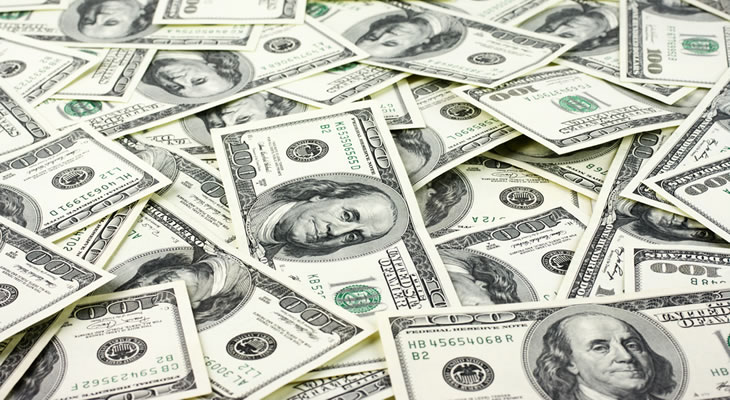Updated 16:24 GMT 09/11/2017:
Towards the end of Thursday’s European session, the US Dollar Canadian Dollar exchange rate trended near a multi-week-low of 1.2693.
On top of uncertainty about US tax reform, the US Dollar was pressured by the latest jobless claims report, which indicated that more people than expected were making jobless claims.
The Canadian Dollar was little affected by the day’s new housing price index, which came in at 0.2% month-on-month as expected and remained at 3.8% year-on-year.
[Published 11:51 09/11/2017]
US Dollar traders have become increasingly invested in the idea that US President Donald Trump’s tax reform proposals could be pushed into law, so uncertainty about the likelihood of the bill’s success is weighing on the US Dollar Canadian Dollar exchange rate outlook on Thursday.
USD CAD began the week trending at the level of 1.2757. The pair briefly hit a high of 1.2806 on Tuesday, but since then has trended nearer lows of 1.2704.
US Dollar (USD) Outlook Pressured by Tax Reform Uncertainty
Investors have been hopeful that US President Donald Trump and Congress will successfully deliver tax reform policies that could include corporate tax cuts.
However, uncertainties have persisted due to the failures of Republican healthcare bills in Congress throughout the summer, as well as concerns that the tax bills are unpopular.
Markets widely expect the Federal Reserve will deliver a third 2017 interest rate hike during its December policy decision. With bets over 95%, the rate hike is now largely priced into the ‘Greenback’ and has helped the US currency to hold its ground recently.
This also means that the US Dollar is unlikely to advance much further on Federal Reserve news any time soon though.
According to a Reuters poll, analysts believe that further US Dollar gains highly rely on progress in tax reform – which is still far from a certainty. Analysts generally expect the US Dollar will see relatively steady performance over the next year.
The Republican Party is hoping to make progress on tax cuts by the end of November and market optimism about that possibility has slipped slightly in recent sessions.
Mutterings that senior Republicans are considering delaying corporate tax cut plans for a year also weighed on the ‘Greenback’.,
According to Morgan Stanley strategist David Adams;
‘We see USD nearing the end of its rally,
Near-term political risks relating to tax reform also keep us bearish on USD as much of the positive news on tax reform has been priced in.’
Overall, analysts don’t expect the US Dollar’s recent strength to extend much further unless there is notable progress in tax reform plans, and the ‘Greenback’ outlook could easily drop again if the tax plans aren’t as successful as hoped.
Friday’s Michigan consumer sentiment survey could influence US Dollar trade slightly, but ‘Greenback’ traders are likely to be increasingly focused on tax reform as the month goes on.
Canadian Dollar (CAD) Supported by Oil News and Poloz Tone
Demand for the Canadian Dollar has improved towards the end of the week, thanks to strong commodity price news as well as a less dovish than expected tone from the Bank of Canada (BOC) Governor.
Prices of oil, Canada’s most lucrative commodity, hit their best levels in two and a half years earlier in the week.
While prices have since slipped and investors expect them to slip further in the coming days, the news has made investors hungrier for risk-correlated currencies. This has helped the Canadian Dollar to strengthen against the comparatively safe US Dollar.
On top of this, Bank of Canada Governor Stephen Poloz took a less dovish tone than expected in his speech on Tuesday evening.
Following disappointing inflation data and a cautious BOC over the last month, the Canadian Dollar has been weak.
Poloz did maintain caution, but remained confident that Canadian inflation would reach the bank’s 2% targets, claiming that underlying inflation trends were well within the bank’s target range.
He explained that the worse-than-expected inflation was due to excess capacity in the economy.
Overall, there was nothing particularly impressive to investors about his speech, but it did calm those concerned that the bank could regret the interest rate hikes it made over the summer.
The Canadian Dollar is likely to react to the strength of risk-sentiment and the US Dollar over the coming week, at least until next Friday’s Canadian inflation data from October is published.
If Canada’s inflation results beat expectations on the 17th, the Canadian Dollar will see stronger demand against the US Dollar, especially if US tax reform plans hit roadbumps.
USD CAD Interbank Rate
At the time of writing this article, the US Dollar Canadian Dollar exchange rate trended in the region of 1.2696. The Canadian Dollar to US Dollar exchange rate traded at around 0.7875.


Comments are closed.